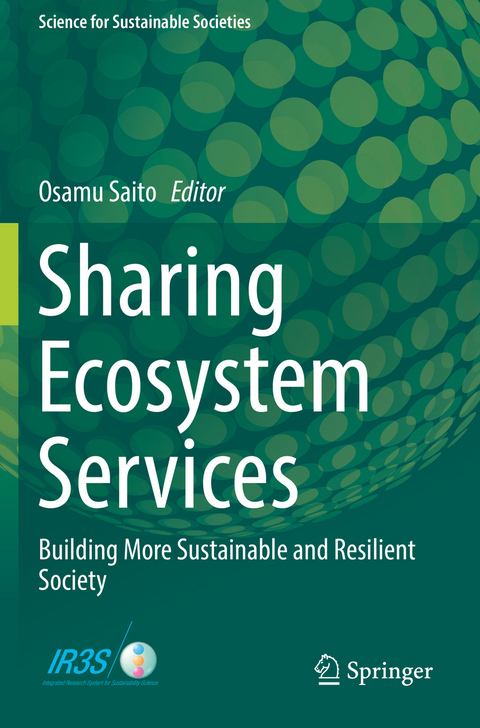
Sharing Ecosystem Services
Springer Verlag, Singapore
978-981-13-8069-3 (ISBN)
Osamu Saito United Nations University Institute for the Advanced Study of Sustainability (UNU-IAS) Tokyo, Japan
What and how are we sharing? Academic landscape of the sharing paradigm and practices. Objectives and organization of the book.- Home-based food provision and social capital in Japan.- Food provisioning services via homegardens and communal sharing in satoyama socio-ecological production landscapes on Japan’s Noto peninsula.- Non-market food provisioning services via homegardens and communal sharing in satoyama socio-ecological production landscapes on Japan's Noto peninsula.- Sharing experiences and associated knowledge in the changing waterscape: an intergenerational sharing program in Mikatagoko area, Japan.- "Sustaining Diverse Knowledge Systems in SEPLs: Sharing Tacit Knowledge of Apiculture and Mushroom Production with Future Generations.- Can new digital technologies and traditional sharing practices be inte-grated? The case of use of natural resources in Palau, Micronesia.- Solidarity Economy in Brazil: Towards Institutionalization of Sharing and Agroecological Practices.- Sharing knowledge and value for nurturing socioecological production landscapes: a case of payment for ecosystem services in Rejoso watershed, Indonesia.- Sharing Place: A case study on the loss of peri-urban landscape to urbanization in India.- Cow-Sharing and Alpine ecosystems. A comparative case study of sharing practices and property rights .- Synthesis: Can sharing enhance the sustainability and resilience of our society?.
| Erscheinungsdatum | 01.09.2020 |
|---|---|
| Reihe/Serie | Science for Sustainable Societies |
| Zusatzinfo | 49 Illustrations, color; 45 Illustrations, black and white; VI, 265 p. 94 illus., 49 illus. in color. |
| Verlagsort | Singapore |
| Sprache | englisch |
| Maße | 155 x 235 mm |
| Themenwelt | Naturwissenschaften ► Biologie ► Ökologie / Naturschutz |
| Naturwissenschaften ► Geowissenschaften | |
| Sozialwissenschaften ► Politik / Verwaltung | |
| Wirtschaft ► Volkswirtschaftslehre | |
| Schlagworte | Hidden flow • Natural capital • Sharing Economy • Social capital • Social network • Socio-ecological landscapes |
| ISBN-10 | 981-13-8069-4 / 9811380694 |
| ISBN-13 | 978-981-13-8069-3 / 9789811380693 |
| Zustand | Neuware |
| Haben Sie eine Frage zum Produkt? |
aus dem Bereich


